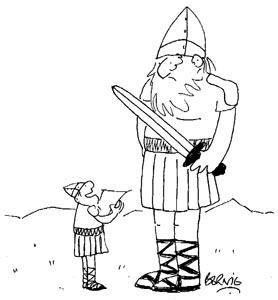New world order
Sir: Poor old Irwin Stelzer is stuck in an Atlantico-centric world in which the main debate is still about choosing between Europe and America and deciding which side of the Atlantic Ocean is top dog (‘The Special Relationship is between Washington and Brussels’, 24 November).
When will Washington, or Brussels, grasp that this world has now disappeared? Power and influence have now moved away from the Atlantic powers and in three new directions — to a billion or more participants in the world wide web, to two billion-plus new capitalists in Asia and to the lands of the petrodollars — the latter two now generating most of the world’s savings and exporting the capital which drives the planet’s economy (and buys up our assets).
British foreign policy now has to tune into these entirely new networks of which, incidentally, the transcontinental, trans-north-south, multifaith Commonwealth will be an increasingly useful and important element.
David Howell
House of Lords, London SW1
Hood’s lack of style
Sir: Lord Patten (‘Westminster politics has nothing on Oxford’s battles’, 24 November) shows less than his usual savvy in dealing with the vice-chancellor’s departure. It was not only the reforms proposed by Dr Hood that so many Oxonians objected to, but also the manner he went about trying to implement them. To bracket Hood with Lucas and North misses the point. The last two, former heads of houses, worked from within the system to effect change; Hood decided to adopt much less sophisticated methods, wholly alien to the traditional tone and spirit of the university’s counsels.
That tone and spirit are not hard to define. As and when the next vice-chancellor arrives, Lord Patten should present the new incumbent with the works of another New Zealander long resident in Oxford and, as it happens, mentioned by Frederic Raphael in last week’s magazine. ‘The great modern iconoclast’ Sir Ronald Syme certainly was. However, he was also so steeped in the learning of Greece and Rome that inevitably he was aware of what Thomas Hardy calls life’s little ironies — and some big ones as well. The air of Oxford contains a high irony quotient; this does not always synthesise with questionable techniques of modern systems managers. At the end of his book on Tacitus, Syme observes: ‘Men and dynasties pass, but style abides.’ The retiring vice-chancellor might ponder these words in his new home. Whatever else Oxford can overlook, it will never forgive a lack of style.
Robin Taylor
Blackburn, Lancashire
Razing the issue
Sir: Quinlan Terry (Letters, 24 November) answers Simon Thurley’s plea for better architecture by pointing out, with reason, that steel and glass buildings designed to last only 40 years are less environmentally congenial than enduring brick and stone. He might have challenged Thurley on the fate of Thurley’s own headquarters, the English Heritage building in Savile Row, formerly the Civil Service Commission, which has just been razed to the ground. It was a very good Art Deco building in stone. Why did English Heritage scrap it, and what will go up in its place?
Andrew Wilton
London SW11
Poetry packs a punch
Sir: Vernon Scannell, who figured in Jeremy Clarke’s column last week (Low Life, 24 November), was quite a legendary figure in Milton Keynes, where he was poet-in-residence some 50 years ago.
His mild, scholarly demeanour belied the fact that he had been a ferocious professional boxer. Drinking in a Milton Keynes pub one evening, some local heavies rather the worse for wear asked him what he did for a living. ‘I’m a poet,’ he told them. Banter led to insults, then one of them hit him. Scannell floored three of them in quick succession before returning amiably to his pint.
He subsequently taught creative writing to young poets, who would go to local pubs in search of Pernod and other fancy drinks. When these mild, wispy-bearded young men were accosted by burly drunks they had only to mention that they were poets for their would-be tormenters to scatter in alarm.
They had learnt the lesson that if you know what’s good for you, you don’t mess with poets; they’ll bust your nose as soon as look at you.
Robert Ireland
Harrow-on-the-Hill, Middlesex
Devices and desires
Sir: Page 13 of your 24 November issue carries an advertisement for a BlackBerry with the GPS device showing a location between St James’s and Piccadilly. ‘Distance to destination’ is shown as 14 miles and ‘Time to destination’ as 19 minutes. I really want one of those!
James Leith
Malmesbury, Wiltshire
Can it
Sir: I would just add one thing to Bryan Forbes’s excellent article regarding the dire state of British television (‘I have earned the right to shout at my television’, 17 November), and that is the insult to one’s intelligence that is ‘canned laughter’. I know what I find funny: I don’t need to be cajoled. It’s especially annoying when it’s inserted over dialogue (which may or not be funny, one will never know). There is also, of course, the minor point that we have to pay for this drivel — when courtesy of the BBC — otherwise the bailiffs come round and break our doors down. I would happily pay proportionately for the small amount that I actually watch. Say, a tenner? I learnt at my mother’s knee to always (at least attempt to) get value for money: with the BBC I am simply being ripped off.
Hugh Wain
Mortimer, Berkshire






Comments